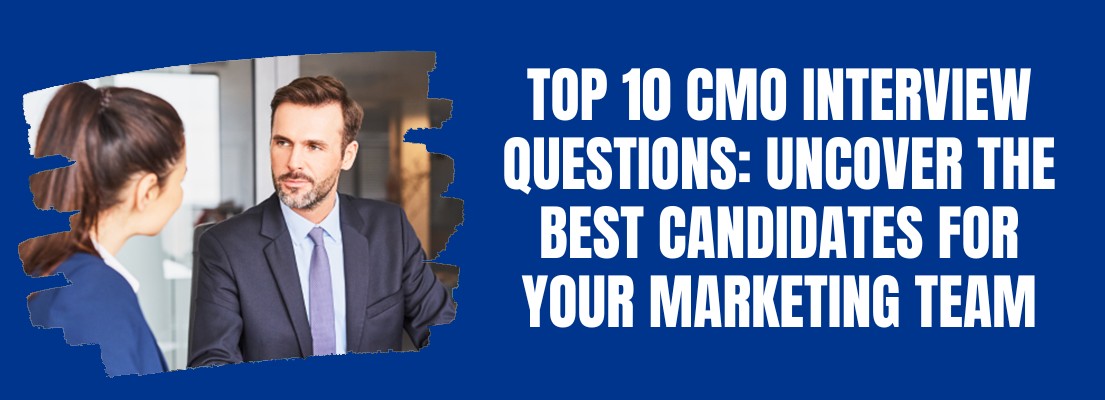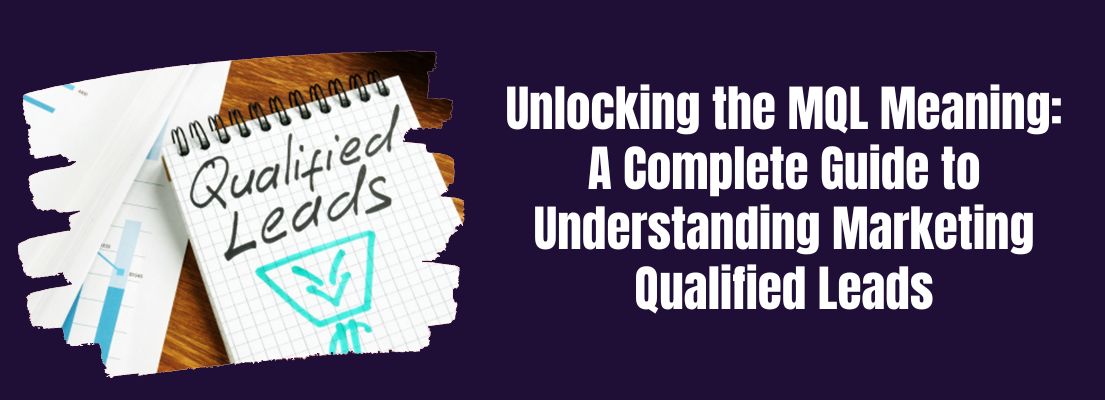Finding the right Chief Marketing Officer (CMO) is crucial for every company, as they will drive your marketing efforts and ultimately impact your bottom line. A great CMO not only possesses technical knowledge and experience but can also adapt, collaborate, and innovate in a constantly evolving marketing landscape. In this blog post, we’ll guide you through the top 10 CMO interview questions designed to uncover the best candidates for your marketing team.
Key Takeaways
- Assess the candidate’s analytical abilities, marketing channel expertise, creativity and innovation, leadership, and team management skills during the CMO interview process.
- Evaluate their vision for future growth of the company’s marketing efforts as well as strategies to measure success & accountability.
- Inquire about experience in scaling marketing campaigns & collaborating with other departments to ensure successful cross-functional relationships.
Essential CMO Interview Questions
Identifying the right CMO requires digging into their expertise across a range of marketing skills and experiences, including:
- Analytical abilities
- Marketing channel expertise
- Creativity
- Leadership
- Branding
Focused interview questions yield a clearer picture of the candidate’s personality, industry track record, and potential contributions to your company’s success.

Analytical Abilities: How do you use data to drive marketing decisions?
Data-driven decision-making is essential for any successful marketing strategy. Utilizing data enables marketers to optimize their campaigns, maximize their return on investment, and hold the marketing team accountable.
It’s important to assess the candidate’s knowledge of key performance indicators (KPIs) and marketing metrics, such as cost per acquisition (CPA), cost per click (CPC), click-through rate (CTR), and return on investment (ROI).
A CMO with strong analytical skills can efficiently measure the effectiveness of marketing campaigns and make data-driven decisions to drive successful marketing efforts.
To evaluate the candidate’s analytical abilities, inquire about their experience using marketing tools and techniques to assess the efficacy of campaigns.
It might include discussing their approach to market research, pricing strategy, and how their digital marketing approach has evolved based on data analysis. Grasping their skill in employing data for marketing decisions helps confirm your future CMO’s capability to handle the intricate marketing landscape and steer your company toward success.
Marketing Channel Expertise: Can you share examples of successful campaigns across various channels?
A CMO candidate’s experience and success in a wide range of marketing channels, from traditional to digital, is critical for their ability to drive the growth of your company.
Digital marketing channels, such as search engine optimization (SEO), content marketing, and social media marketing, can help increase brand visibility and engagement.
Request the candidate to provide examples of successful marketing campaigns they have managed across various channels, including both traditional and digital media.
Understanding the candidate’s experience in handling and implementing a successful marketing campaign across diverse marketing channels helps affirm that your new CMO can steer your marketing team to victory in a growingly competitive market.
Creativity and Innovation: How have you implemented creative solutions in your past marketing campaigns?
The ability to implement creative solutions and innovative approaches in marketing campaigns is essential for a CMO candidate. Innovative marketing strategies, including inbound marketing strategies, can positively impact success, as evidenced by campaigns that incorporate:
- Customer behavior research
- Creative branding strategies
- Video Marketing
- Social media influencers
Inquire about the candidate’s experience with innovative marketing strategies and creative solutions.
Gaining insight into a candidate’s creative thinking and innovative implementation abilities in their marketing campaigns allows you to select a CMO capable of maintaining your brand’s leading position in the continuously changing marketing landscape.
Leadership and Team Management: Describe your leadership style and how you’ve managed marketing teams in the past.
A CMO’s leadership style and experience in managing marketing teams are critical qualifications for the role.
Invite the candidate to discuss their leadership style and their experience with managing marketing teams in the past.
Understanding their approach to leadership and team management can provide important insights into how they might enhance your company’s marketing efforts.
The candidate should demonstrate the following qualities:
- Ability to balance strategic thinking with creative problem-solving
- Provide clear direction to their team, showcasing their leadership skills
- Foster a collaborative environment where team members feel empowered to take ownership of their work
Assessing their leadership style and past experiences in managing marketing teams, along with a proven track record, helps ensure the candidate is a strong fit for your organization and is capable of propelling your marketing efforts toward success.
Branding and Messaging: How do you ensure consistent branding and messaging across all marketing efforts?
Maintaining consistent branding and messaging across all marketing efforts is an important aspect of a CMO’s role. Consistent branding helps create a unified and memorable brand experience, which can lead to increased customer loyalty and higher conversion rates.
Encourage the candidate to share their strategies for ensuring consistent branding and messaging across various marketing channels.
Effective strategies for maintaining consistent branding and messaging include:
- Developing a brand style guide
- Ensuring visual uniformity
- Creating high-quality content
- Conducting regular marketing audits
Evaluating a candidate’s ability to maintain consistent branding and messaging assists in determining their capacity to successfully manage your company’s brand identity and provide a cohesive customer experience across all marketing efforts.
Challenges and Adaptability

The ability to confront obstacles, adjust to alterations, and remain up-to-date with marketing trends and technologies is essential for CMOs to be successful.
A great CMO candidate should demonstrate problem-solving skills, resilience in challenging situations, a dedication to staying apprised of the most current marketing trends and technologies, and an openness to innovative approaches.
This section evaluates the candidate’s ability to overcome challenges and adapt to the continuously changing marketing industry.
Overcoming Obstacles: Describe a challenging situation you faced as a CMO and how you overcame it.
Assessing a CMO candidate’s problem-solving skills and resilience in challenging situations is vital to understanding their ability to navigate and overcome obstacles in the marketing industry.
Have the candidate explain a challenging situation they faced as a CMO and the steps they took to resolve it.
The candidate’s answer should provide insights into their ability to think critically, analyze problems, and develop effective solutions in the face of adversity.
Understanding their approach to overcoming obstacles helps confirm that your new CMO can tackle any challenges that may arise in your company’s marketing efforts and thrive in adverse situations.
Staying Current: How do you stay updated on the latest marketing trends and technologies?
Remaining current is essential in the marketing industry. Without innovation, one effectively regresses.
As such, evaluating the candidate’s commitment to staying updated on the latest marketing trends and technologies is crucial during the interview process.
Encourage the candidate to discuss how they stay informed and adjust their marketing strategies in response to new information.
Successful CMOs often rely on various sources and platforms to keep up-to-date on the latest marketing trends and technologies, such as:
- Forbes
- Industry blogs
- CMO-focused publications
- Industry conferences and events
Grasping their approach to staying current helps affirm your new CMO will be proactive and adaptive, maintaining your company at the leading edge of the marketing landscape.
Collaboration and Cross-Functional Relationships
A Chief Marketing Officer’s (CMO) ability to collaborate with other executives and departments is crucial to align marketing goals with overall business objectives and ensure seamless teamwork.
This section evaluates the candidate’s capacity for collaboration with the executive team and other departments and their potential contribution to a collaborative company culture.

Working with Executives: How do you collaborate with the executive team to align marketing goals with overall business objectives?
Evaluating a CMO candidate’s experience in collaborating with the executive team to align marketing goals with overall business objectives is essential to understanding their ability to contribute to your company’s success.
Request the candidate to detail their experience in coordinating with executives to ensure that marketing strategies complement the overall business objectives.
Collaborating with the executive team ensures that marketing goals align with the company’s overall objectives, as the executive team knows the company’s long-term goals and strategies. Evaluating the candidate’s experience and approach to collaborating with executives helps ensure that your new CMO will effectively contribute to your company’s growth and success.
Interdepartmental Collaboration: How do you ensure seamless collaboration between the marketing team and other departments?
Assessing a CMO candidate’s ability to ensure effective collaboration between the marketing team and other departments is vital for achieving aligned goals and seamless teamwork.
Invite the candidate to share how they facilitate teamwork between marketing and other company divisions.
Effective interdepartmental collaboration can be achieved by establishing clear communication channels, defining expectations, and fostering a culture of collaboration within the organization. Gaining insight into the candidate’s approach to interdepartmental collaboration helps ensure that your new CMO will promote effective teamwork across your entire company.
Measuring Success and Accountability

Measuring success and accountability is the process of assessing the efficacy of marketing initiatives and taking responsibility for attaining objectives. A great CMO candidate should be able to:
- Balance accountability and creativity in a marketing team
- Provide clear direction
- Foster a collaborative environment where team members feel empowered to take ownership of their work.
This section examines the candidate’s approach to measuring marketing success, including inbound and outbound marketing strategies and maintaining accountability for achieving goals within their team.
Key Performance Indicators: What KPIs do you use to measure the success of your marketing campaigns?
Understanding a CMO candidate’s preferred key performance indicators (KPIs) for measuring the success of marketing campaigns is crucial for evaluating their ability to drive marketing success.
Request the candidate to explain how they measure the effectiveness of their marketing initiatives using specific KPIs.
The candidate’s answer should provide insights into their ability to utilize data-driven insights to optimize campaigns, maximize return on investment, and hold the marketing team accountable. Grasping their preferred KPIs and methods for measuring marketing success helps ensure that your new CMO can effectively assess the performance of your company’s marketing efforts and drive success.
Accountability: How do you hold yourself and your team accountable for achieving marketing goals?
Gauging a CMO candidate’s commitment to taking responsibility for achieving marketing goals and holding their team accountable is important for understanding their ability to drive success.
During the interview, ask the candidate about their strategies for holding themselves and their team accountable for achieving marketing goals.
The candidate’s answer should provide insights into their ability to establish clear expectations, offer feedback and guidance, and enforce accountability for actions. Assessing their approach to accountability helps ensure that your new CMO will cultivate a culture of responsibility and propel success in your company’s marketing efforts.
Accountability: How do you hold yourself and your team accountable for achieving marketing goals?
A CMO’s strategic thinking is essential for having a vision for where the company should be directed and devising a plan of action to realize it. This section investigates the candidate’s vision for the future of the company’s marketing efforts and their ability to scale marketing efforts for business growth.

Long-term Strategy: What is your vision for the future of our company’s marketing efforts, and how will you contribute to that vision?
Assessing a CMO candidate’s vision for the future of the company’s marketing efforts and their potential contribution to that vision is crucial for understanding their ability to drive long-term success.
Invite the candidate to share their vision for the future of your company’s marketing efforts and how they plan to contribute to that vision.
The candidate’s answer should provide insights into their strategic thinking capabilities, their understanding of organizational objectives, and the potential steps they suggest to reach these objectives. Gaining insight into their vision for the future of your company’s marketing efforts helps ensure that your new CMO will effectively contribute to your company’s long-term growth and success.
Scaling Marketing Efforts: How have you successfully scaled marketing efforts in the past to drive business growth?
Learning about a CMO candidate’s experience in successfully scaling marketing efforts to drive business growth is essential for understanding their ability to contribute to your company’s success.
Ask the candidate about their past experiences scaling marketing efforts and the strategies they employed to support business growth.
The candidate’s answer should provide insights into their ability to leverage data-driven insights, create focused campaigns that reach a larger audience, and generate more leads. Understanding their experience in scaling marketing efforts helps ensure your new CMO can drive business growth and help your company reach new heights.
Summary
In conclusion, finding the right CMO for your company involves a thorough evaluation of their skills, experiences, and ability to adapt, innovate, and collaborate.
You can uncover the best candidate who will drive your marketing efforts to success and help your company thrive in a constantly evolving marketing landscape by asking these top 10 CMO interview questions.
Remember, a great CMO not only has the technical knowledge and experience but also the ability to inspire and lead your marketing team to new heights.
Recommended Reading: How to Achieve Your SaaS B2B Marketing Goals
Frequently Asked Questions
How do I prepare for a CMO interview?
Highlight your most recent work in your portfolio, ask well-informed questions, update your resume, and use professional body language to best prepare for a CMO interview.
What are additional questions to ask the CMO?
- What strategies do you use to develop brand awareness?
- How do you measure the success of campaigns?
- What’s your experience with managing budgets and resources?
- How do you stay current on industry trends and shifts in consumer demand?
- How do you prioritize objectives when allocating marketing spend?
- What’s your process for selecting vendors and partners?
- What metrics do you use to measure performance?
- How do you ensure that marketing is aligned with other departments?
- What processes have you implemented to optimize efficiency?
- How do you approach customer segmentation?
What are the five key functions of a CMO?
As Chief Marketing Officer, the CMO’s key roles and responsibilities include leading customer insights and analytics, driving marketing strategy, developing the company’s brand, managing relationships with media partners, and overseeing marketing operations.
What are the key skills and experiences a CMO candidate should possess?
A CMO candidate should possess analytical and creative skills, a successful marketing record, an understanding of traditional and digital marketing channels, effective communication skills, adaptability, and a willingness to innovate.
How can a CMO ensure consistent branding and messaging across all marketing efforts?
To ensure consistent branding and messaging across all marketing efforts, a CMO should create a brand style guide, focus on visual uniformity, produce high-quality content, and conduct regular marketing audits.





